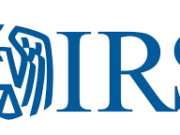This happened in the streets of DC on Saturday and, if you missed it, here’s the gist: referencing Professor Lawrence Lessig’s TEDx talk from last week as a philosophical starting point, Josh Silver, CEO of the nonpartisan advocacy group United Republic and director of its Represent.Us campaign finance reform campaign, tells Moyers & Company’s Michael Winship about his K St. 5 K:
“We [got last Saturday] about 700 people to dress up as $100 bills running down K Street in Washington D.C. to the US Capitol. We [arrived] there, the Capitol police prevent[ed] us from going into the Capitol, and the money [was] blocked and…then [we] provide[d] the Capitol police with an award, a golden plaque congratulating them for doing what Congress has been afraid to do or unwilling to do for decades, which is keep money out of Congress.”
Silver, lately of FreePress and currently with the United Republic, in his discussion with Winship, offers this as a reason he’s parading dollar bills down K street and — as he mentions in the audio file — attempting to introduce a Congressman stripper (?) into the collective consciousness:
“You need to think of your top issue as one of your children and you need to think of media and money in politics as your other two children, let’s say. But the idea being you don’t love one child more than the other, or, as the professor Lawrence Lessig said at his TED talk last week — that was released last week — he said, ‘This doesn’t need to be your top issue, but it needs to be your first issue,’ money in politics, because if you don’t win it, you don’t fix it, you will never pass, you’ll never advance your most prized issue, be it environment, women, whatever.”
Silver is correct about one thing: money in politics is important. It is the fuel to the engine and it is an absolutely ludicrous assertion that you can remove money from politics and that the vehicle for elections in this country will still run. Because rest assured, elections will still happen, and there will still be money in politics making it happen should Silver and the reformers succeed in “removing” the money. It will just be far less dispersed, far less disclosed (ironically), and far less accountable. One need look no further than New York for proof of that, highly regulated in terms of campaign finance rules, and one of the most corrupt systems in the country.
One wonders if Silver is aware of this fact, or if he makes the connection between over-regulation and corruption. But, if you listen closely, you’ll discover that his goal is not really reform in the strictest sense. Rather, it’s selling the idea of reform as a cure to corruption. He seeks, as he says, to make it “conventional wisdom in mainstream washington” that getting money out of politics will clean up the system. And that’s a different goal than ACTUALLY cleaning up the system (to the extent that it needs cleaning).













